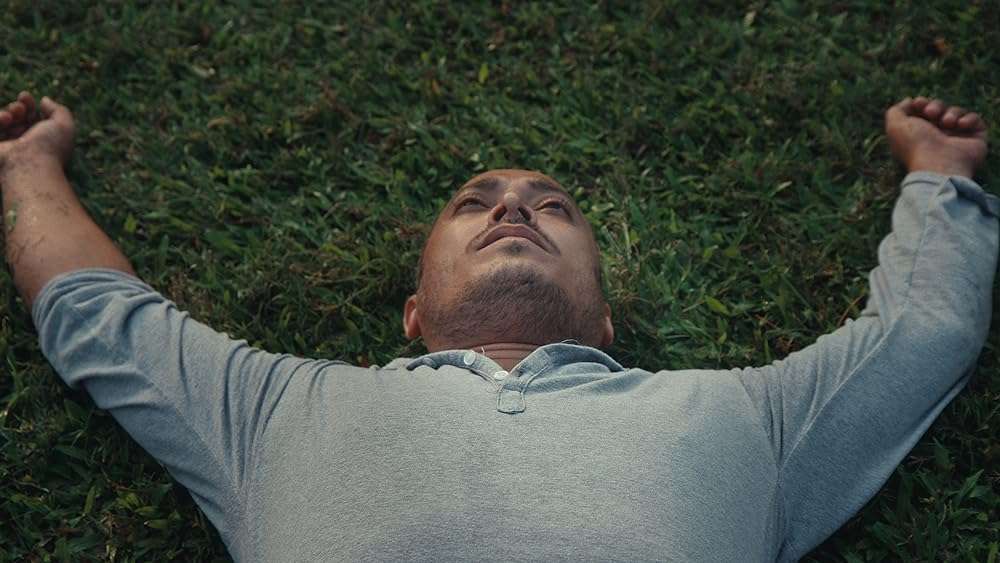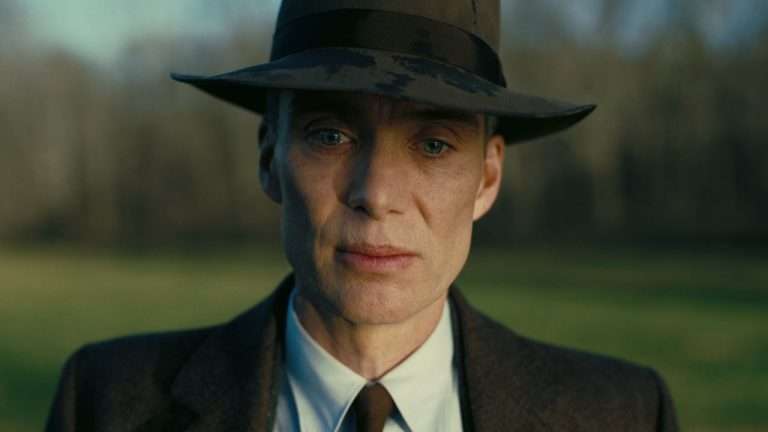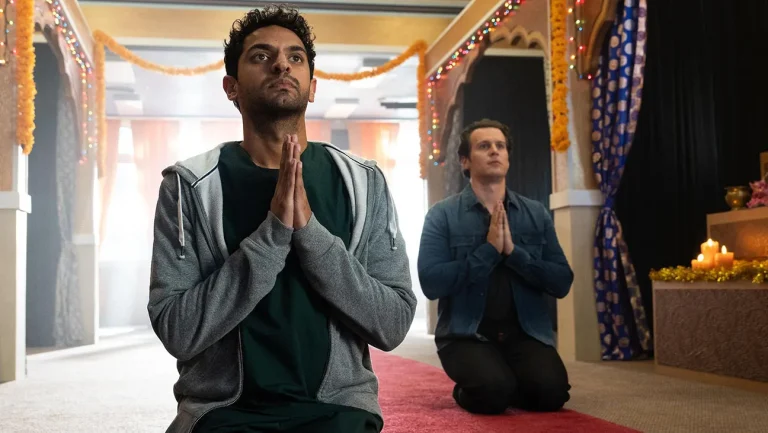In her new film, Tora’s Husband (2023), director Rima Das presents us with narrative gestures that are unusually broader and largely tailored, a marked departure from the tempo we associate with her work. In her previous two features, Village Rockstars and Bulbul Can Sing, Das demonstrated an affinity for somewhat loose, unwieldy mood pieces that linger around instead of adhering to hardened templates. Characters were inextricably bound with the natural landscapes of the rustic settings they inhabited. Here, Das’s focus shifts to a small town in Assam, quietly observing interpersonal dynamics. But I couldn’t quite shake off the impression that the rhythms of this film’s storytelling feel more designed to attract a wider audience than her devoted set of admirers.
Das, who also edits her films, has cleaved through and trimmed Tora’s Husband in ways that invite enhanced accessibility yet give off a compression that is more grating than smooth. There’s an unmistakable varnish Das has applied to the edges while attempting to evoke a sense of the every day at a specific time when the world and her town are shuffling back to normalcy after a relaxation of the pandemic-induced lockdown. In this film, Das has leaned into the crests and troughs of narrative cinema more than she has ever, to arguably mixed results.
However, every now and then, strains of her familiar style slip past the conventional frameworks at play. The brisk, vignette-like sequences that intermittently punctuate the film and the larger, prevailing tenor that the film carefully accrues share a polarised relationship. I’m obviously not suggesting or implying these two varying cinematic rhythms cannot run in tandem, but Das’s maneuvering of the thematic undercurrents comes off as flaky and irresolute. The film is geared toward Abhay, popularly addressed as Jaan (played by Das’s own brother, Abhijit Das), Tora’s (Tarali Kalita Das) husband. He is a man devoted to his community, driven by a strong determination to do something for and give back to the place and people who raised him.
When we initially meet Jaan, he exudes an impeccable kindness and generosity. He never turns away a local drunk who habitually requests for some money and gently talks to everyone he meets. He runs a restaurant-cum-bakery and is the rare employer who also stands up for his employees whenever he gauges the misbehavior of customers. As Das projects Jaan as an exceedingly considerate man within his community, she slowly interjects this admirable, mild-mannered persona with a sharp critique positioned through his wife and her grouses toward him.

Tora is overwhelmed by Jaan’s emotional absence. While everyone hails Jaan as a paragon of virtue, Tora reminds, in one of the film’s most telling exchanges, that he may be a good man but not a good husband. She desperately wishes to be involved and offer the support her husband might need. However, Jaan keeps all his anxieties mostly repressed, reluctant to share them with her. His alcohol addiction only exacerbates matters. Jaan is gentle but not without hardened masculine notions of not opening up and properly articulating the extreme turmoil he is experiencing; he feels he must shoulder all of the stress on his own. Das particularly excels in her profoundly compassionate gaze scrutiny upon both people in a marriage in trying circumstances, though I’d have loved to see more of Tora.
Jaan’s sense of public duty is meticulous; he almost proudly wears obligations as a badge of honor that confers him with the identity of an upstanding individual. Like any small business, his is also hit severely. As he himself tells his employees, he kept his staff together at great pains through the lockdown, not downsizing despite being aware that this decision could be passed off as financially unsound.
We can gauge the immense responsibility Jaan feels toward his staff, all of whom he has gleaned from local areas. This man feels beholden to his childhood football club and its members, drawing on nostalgia as a source of sustenance and acutely attuned to a need to reflect himself as an exemplary personage. The very first time we are introduced to Jaan, we see him practicing with a football by himself. He seeks to impart this love to his son but to no avail. Das captures this in a striking scene but also unnecessarily extends the interest in this aspect. This attenuates the impact of a connection a viewer can easily make.
This emerges as one of the recurring flaws that plunge Tora’s Husband into becoming a series of effete, over-pronounced dramatic sketches of insights into a family and the individuals who constitute it. The film displays its peculiar, tonally irreconcilable tendencies very early on. While there are clear efforts to establish and locate the domestic portraits within the macro, the larger scale of things, the film’s footing in this regard is decidedly uncertain and shorn of conviction. The impulse to make a broad, social comment is undone by unconvincingly planted angles of political expression.
The lockdown circumstance and its portrayal come off as dutifully check-listed, although that crucially forms the background, the driving force that has put Jaan’s life into a toss and somewhat glaringly maximized his questionable sense of priorities. Albeit sincere in intent, there are stilted, contrived portions teeming in the film, solely for offering us a peek into the despair, crippling uncertainty, and panic of the COVID times, ranging from getting tested to droves of infected, anguished people being driven away in vans to isolated shelters/wards.
Several scenes are abruptly cut; the tension that builds at night when a wounded Jaan disappears and Tora searches for him on the roads late at night is peculiarly clipped off. There are also clunky, easily disposable sections involving one of Jaan’s business associates, scenes that have been retained only to buttress certain points about the precariousness of daily wage labor that compounded during the pandemic. The culminating conflict resolution also arrives as rushed.
Tora’s Husband is at its sparkling, endearing best when Das channels her indubitable talent and unerring eye for the more intimate, ferreting out a scattering of exquisitely shot (by Das herself) and gorgeously heartfelt moments from the textures of the mundane. When Das trusts the film to unfold in a more relaxed, unhurried, and lowkey fashion, it’s impossible not to feel the rush of love and warmth she has for her characters, embracing them in all their flaws and failings.
An ease and affection seep through her depiction of the children in all states of being, be it lazing around or wandering and even being full of vexing, overbearing neediness. Das’s gaze is ever-loving but never shies away from the fact that children can also be quite a handful. In one of the final scenes, the family gets together, awash in rain, a bunch of happy faces, set to Bishrut Saikia’s charming song, Tenekoi. It’s absolutely magical. As long as Das lets such moments breathe with a lovely mellowness, her film blooms.






![Wet Sand [2021] ‘Locarno’ Review – A Well-Crafted Microcosmic Tale of Love in a Prejudiced Society](https://79468c92.delivery.rocketcdn.me/wp-content/uploads/2021/08/Wet-Sand-2021-768x405.jpg)


![Still Out of My League [2021] Review: A well-intentioned, yet mediocre Rom-com](https://79468c92.delivery.rocketcdn.me/wp-content/uploads/2021/12/Still-Out-of-My-League-2021-768x432.jpg)